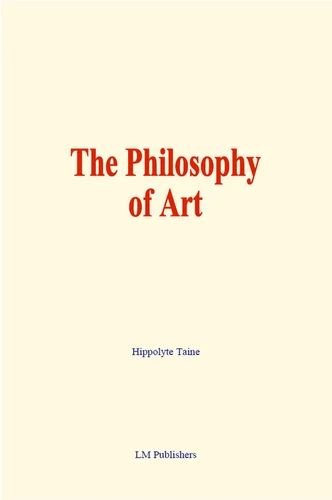The Philosophy of Art
Par :Formats :
Disponible dans votre compte client Decitre ou Furet du Nord dès validation de votre commande. Le format Multi-format est :
- Pour les liseuses autres que Vivlio, vous devez utiliser le logiciel Adobe Digital Edition. Non compatible avec la lecture sur les liseuses Kindle, Remarkable et Sony
 , qui est-ce ?
, qui est-ce ?Notre partenaire de plateforme de lecture numérique où vous retrouverez l'ensemble de vos ebooks gratuitement
Pour en savoir plus sur nos ebooks, consultez notre aide en ligne ici
- FormatMulti-format
- ISBN978-2-38111-401-9
- EAN9782381114019
- Date de parution11/05/2022
- Protection num.NC
- Infos supplémentairesMulti-format incluant ePub avec ...
- ÉditeurLM Publishers
Résumé
Which laws govern the character and creation of works of art? On which philosophy is based the production of the artists?
This book deals with the philosophy of art through its history.
"The artist himself, considered in connection with his productions, is not isolated; he also belongs to a whole, one greater than himself, comprising the school or family of artists of the time and country to which he belongs.
For example, around Shakespeare, who, at the first glance, seems to be a marvellous celestial gift coming like an aerolite from heaven, we find several dramatists of a high order - Webster, Ford, Massinger, Marlowe, Ben Jonson, Beaumont and Fletcher - all of whom wrote in the same style and in the same spirit as he did. There are the same characters in their dramas as in Shakespeare's, the same violent and terrible characters, the same murderous and unforeseen occurrences, the same sudden and frenzied passions, the same irregular, capricious, turgid, magnificent style, the same exquisite poetic feeling for rural life and landscape, and the same delicate, tender, affectionate ideals of woman"...
For example, around Shakespeare, who, at the first glance, seems to be a marvellous celestial gift coming like an aerolite from heaven, we find several dramatists of a high order - Webster, Ford, Massinger, Marlowe, Ben Jonson, Beaumont and Fletcher - all of whom wrote in the same style and in the same spirit as he did. There are the same characters in their dramas as in Shakespeare's, the same violent and terrible characters, the same murderous and unforeseen occurrences, the same sudden and frenzied passions, the same irregular, capricious, turgid, magnificent style, the same exquisite poetic feeling for rural life and landscape, and the same delicate, tender, affectionate ideals of woman"...
Which laws govern the character and creation of works of art? On which philosophy is based the production of the artists?
This book deals with the philosophy of art through its history.
"The artist himself, considered in connection with his productions, is not isolated; he also belongs to a whole, one greater than himself, comprising the school or family of artists of the time and country to which he belongs.
For example, around Shakespeare, who, at the first glance, seems to be a marvellous celestial gift coming like an aerolite from heaven, we find several dramatists of a high order - Webster, Ford, Massinger, Marlowe, Ben Jonson, Beaumont and Fletcher - all of whom wrote in the same style and in the same spirit as he did. There are the same characters in their dramas as in Shakespeare's, the same violent and terrible characters, the same murderous and unforeseen occurrences, the same sudden and frenzied passions, the same irregular, capricious, turgid, magnificent style, the same exquisite poetic feeling for rural life and landscape, and the same delicate, tender, affectionate ideals of woman"...
For example, around Shakespeare, who, at the first glance, seems to be a marvellous celestial gift coming like an aerolite from heaven, we find several dramatists of a high order - Webster, Ford, Massinger, Marlowe, Ben Jonson, Beaumont and Fletcher - all of whom wrote in the same style and in the same spirit as he did. There are the same characters in their dramas as in Shakespeare's, the same violent and terrible characters, the same murderous and unforeseen occurrences, the same sudden and frenzied passions, the same irregular, capricious, turgid, magnificent style, the same exquisite poetic feeling for rural life and landscape, and the same delicate, tender, affectionate ideals of woman"...






















